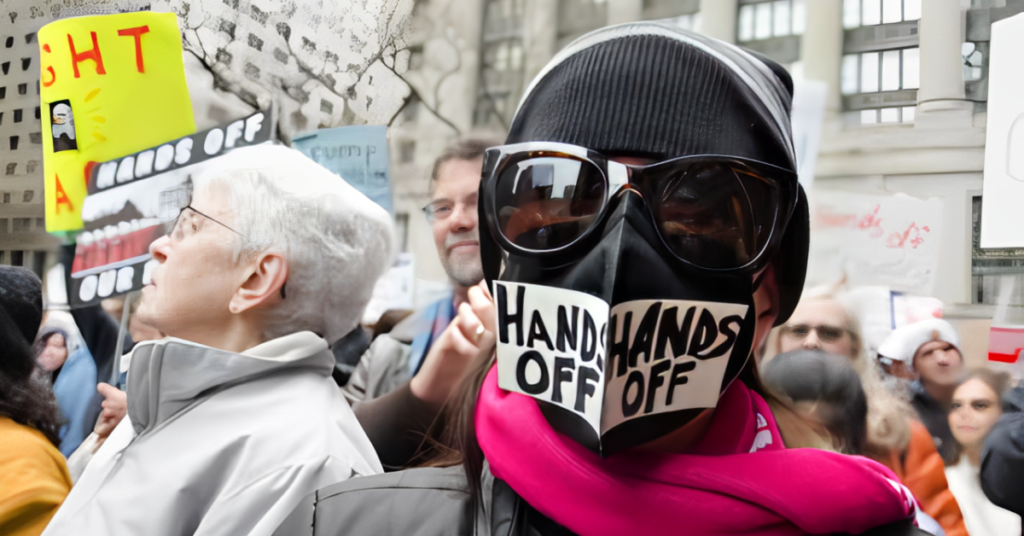The political landscape in the United States has seen significant changes since Donald Trump took office in 2017. While he managed to secure a strong base of support, particularly from his core followers, there has also been an emerging opposition movement that aims to challenge his leadership. This movement is growing rapidly, fueled by concerns over his policies, actions, and political style.
The opposition to Trump’s presidency is not limited to traditional Democratic party members but also includes disillusioned Republicans, independents, and progressive activists. This diverse coalition is determined to take action against what it sees as a threat to American values and democracy.
Why the Opposition Movement is Gaining Ground
Several factors have contributed to the rise of this opposition movement. First and foremost, Trump’s controversial actions and statements have created division across the country. His handling of critical issues such as healthcare, immigration, and the environment has sparked protests and widespread discontent. His divisive rhetoric, especially on race and gender, has alienated many Americans, including long-time Republicans who find his approach to governance troubling.
Another key factor is the growing dissatisfaction with Trump’s economic policies. While his administration did push for tax cuts and deregulation, many of these policies have been criticized for disproportionately benefiting the wealthy and leaving the working class behind. This economic disparity has further fueled the opposition, especially among middle—and lower-income voters who feel left out of the so-called “economic recovery.”
Furthermore, Trump’s approach to foreign policy, including his often contentious relationships with allies and his handling of global issues like climate change, has raised alarms both domestically and internationally. Critics argue that his “America First” policy has isolated the U.S. on the world stage, weakening alliances and harming the country’s long-term standing in global politics.
A More Unified Opposition Than Ever Before
What sets this movement apart from previous political opposition movements is the increasing unity among its members. While traditionally, opposition movements may have been fragmented or limited to specific groups, this new wave of opposition is more coordinated and diverse. It brings together people from all walks of life, including women’s rights advocates, environmentalists, healthcare reformers, and social justice groups, who are all focused on one common goal: ensuring that Trump does not remain in power beyond his first term.

One key aspect of this unified opposition is the increasing involvement of young voters. Millennials and Gen Z, who have grown up in a time of rapid social change, are increasingly vocal in their opposition to Trump’s policies.
They are using social media platforms like Twitter, Instagram, and TikTok to organize protests, share information, and mobilize voters. This digital age of activism has allowed the opposition movement to grow faster than ever before, reaching millions of people in a matter of hours.
Additionally, grassroots organizations are playing a significant role in mobilizing opposition to Trump. Groups like Indivisible, MoveOn, and the Women’s March have become powerful forces in shaping public opinion and organizing protests. These organizations have successfully pressured politicians to take stronger stances against Trump, pushing for more accountability and transparency in his administration.
Challenges Faced by the Opposition
Despite the momentum of this growing opposition, it faces several challenges. One of the biggest hurdles is the continued strength of Trump’s base, which remains loyal and deeply supportive of his leadership. These supporters are not easily swayed by the opposition’s criticisms, and they continue to turn out in large numbers to support Trump’s policies.
Furthermore, while the opposition movement has become more unified, there are still significant divisions within it. Different groups within the opposition have varying priorities, and while they may agree on the need to remove Trump from office, their long-term political visions often differ. Some may push for more progressive policies, while others may advocate for a return to more moderate or centrist politics.
Another challenge is the perception of Trump as a political outsider who is “fighting the system.” His supporters continue to view him as a champion of the common people, someone who is willing to take on the establishment. This populist appeal makes it difficult for the opposition to present a cohesive and effective alternative.
The Role of the 2020 Election
As the 2020 presidential election approaches, the opposition movement is gearing up for what is likely to be one of the most contentious political battles in modern American history. While several Democratic candidates have thrown their hats into the ring, the question remains whether any of them can effectively challenge Trump and unite the country against his divisive leadership.
Many in the opposition are hoping that the election will be the turning point that ends Trump’s presidency. However, with his base remaining strong and his ability to mobilize voters through social media and rallies, the road to defeating him will not be easy.
The Future of the Opposition Movement
Looking ahead, it’s clear that the opposition movement will continue to grow, whether Trump remains in office or not. His presidency has sparked a renewed interest in activism and political engagement, especially among young people. The issues raised by the opposition, from racial justice to economic inequality, are unlikely to disappear anytime soon, and the fight against Trump’s leadership is just one chapter in a much broader movement for change.
Regardless of the outcome of the 2020 election, the opposition movement has already had a lasting impact on American politics. It has challenged the status quo, encouraged political participation, and given a voice to many who previously felt unheard. In the coming years, this movement will likely continue to evolve, pushing for greater accountability and a more inclusive political system.
Disclaimer: This article has been meticulously fact-checked by our team to ensure accuracy and uphold transparency. We strive to deliver trustworthy and dependable content to our readers.








